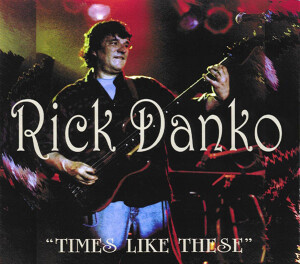 No’am Newman wrote this review.
No’am Newman wrote this review.
Liking The Band does not mean that automatically you are going to like Rick Danko’s solo records, especially if The Band’s records you like the most were recorded in the 1960s. But there is a correspondence to the last few Band records (especially Jubilation – indeed, that album’s opening song, “Book Faded Brown” shows up here in a different version), which only goes to show the difference that Richard Manuel and Robbie Robertson can make.
Danko died in December 1999, whilst working on this record, although presumably it must have been in an advanced state – otherwise this disk wouldn’t have been marketed. The tracks were recorded in various studios throughout the ’90s, and include two live performances (recorded at the Acoustic Cafe a few weeks before his death).
Possibly because the recordings were collected over time as opposed to being done en bloc, the songs display many different styles, and there is little cohesion among them. The opening track, the self-penned “Times Like These,” has a lovely instrumental opening (piano, acoustic guitar, bongos and chimes), leading into the song itself, which is performed in restrained singer songwriter style (although Danko’s distinct vocal style removes it from that genre and takes it somewhere else).
On the other hand, the second track “Ripple” (the Grateful Dead song) and the penultimate song “Let The Four Winds Blow” (one of the Acoustic Cafe tracks) are more like singsongs around the campfire, and one’s enjoyment of these tracks seems to be inversely proportional to the state of one’s sobriety.
Much less country flavoured is a cover version of Sam Cooke’s “Chain Gang,” which is an amalgam of country, slow rock and soul. This features a fine saxophone solo from fellow Band member Garth Hudson as the playout, and whilst the chorus isn’t too inspired, the verses display a fine amount of soul. Also not country, but in complete contrast, is the next song, “Change Is Good” (Danko being one of the three authors), which was recorded in 1993, and is much harder in all aspects.
The real surprise is probably the seventh track, the song which has earned Danko more money than anything else, “This Wheel’s On Fire.” Beginning with flamenco guitar, the track picks up pace and instruments (piano, accordion) before Danko begins his vocals three minutes into the track.
(Breeze Hill, 2000)
